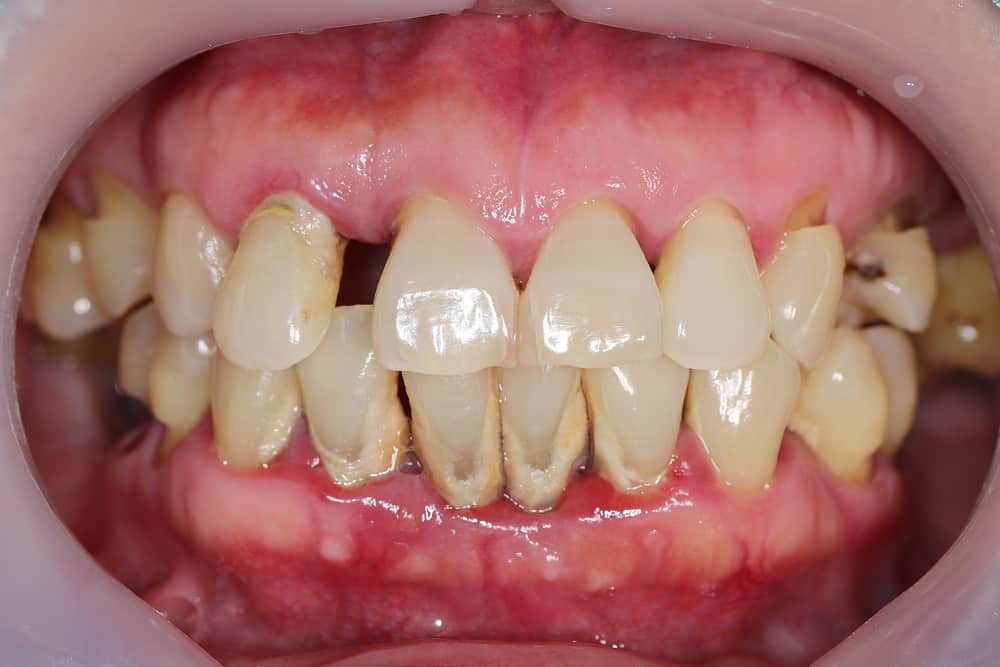What is periodontal disease?
Periodontitis, also known as gum disease, is a severe gum infection that destroys the soft tissue and may harm the bone surrounding your teeth if left untreated. Bacterial plaque adheres to and builds up along the gum line, causing gingivitis which progresses to periodontitis.
Gum disease are the primary cause of adult tooth loss. It is also associated with many systemic disorders, including diabetes and certain forms of cancer.
Following are the common signs of periodontal diseases:
- Gums that are red, swollen, and tender and bleed easily
- Gum line receding
- Pus discharge from the gums.
- Loose or moving teeth.
What are the risk factors of periodontitis?
Several factors can cause periodontitis
- Poor oral hygiene practices.
- Tobacco use, whether smoking or chewing.
- Hormonal fluctuations, such as those associated with pregnancy or menopause.
- Recreational drug use, such as marijuana smoking or vaping.
- Inadequate nutrition, including a lack of vitamin C.
- Genetics
What are dental implants?
Missing teeth are detrimental to your health and cause significant changes in your lifestyle. This is where implants play a crucial role. Dental implants are regarded as the most effective means of replacing one or more missing or damaged teeth. This treatment involves inserting an implant into your mouth to serve as the root of your tooth, which is then topped off with a crown, bridge, or other forms of natural-looking reconstruction.
Can gum diseases lead to tooth loss?
Periodontal disorder, as previously mentioned, is a leading cause of tooth loss in adults. However, if you have gum disease does not mean that you will lose a tooth. There are remedies available and habits you can develop to overcome the infection and prevent tooth loss. Fix the problem as early as possible.
Tooth loss is caused by severe damage to the soft tissue and hard tissues of your oral cavity. When you don’t have enough good soft tissue, bacteria will get deeper into your mouth and damage the bone that surrounds your teeth.
Even so, losing a tooth due to periodontal disease is regarded as the worst-case scenario. Make every effort to prevent reaching this stage of infection. And if you find your teeth are loose, please contact us right away to examine them.
What if I develop periodontal disease after having a dental implant?
Your chance of contracting gum disease would not go away with an implant. Without proper treatment, you can develop peri-implantitis, which is a type of gum disease. Peri-implantitis happens when bacteria accumulate and damage the gum tissue and bone surrounding a dental implant. Peri-implantitis, at its worst, will cause implant failure.
How to prevent peri-implantitis or periodontal diseases?
The importance of prevention cannot be overstated. Adopt the following measures to maintain better oral health –
- Clean and floss your teeth regularly.
- Visit the dentist regularly — at least twice a year.
- Consult your dentist for a preventive procedure to halt the spread of bacteria before it begins.
- Maintain a balanced diet.
- Quit smoking or vaping — it’s a significant cause of peri-implantitis!
If you do develop peri-implantitis, there are treatments available to help you avoid the disease while stabilizing and fixing your implant.

